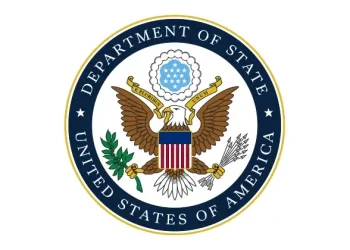The People’s Republic of China has announced new measures to regulate three critical chemicals used in the production of illicit fentanyl. This move signals enhanced cooperation between China and the United States in their ongoing efforts to address the global opioid crisis.

Significant Policy Shift
China’s decision to implement class-wide domestic scheduling control on all fentanyl-related substances represents a major change in their approach to combating the global fentanyl crisis.
This development is a direct outcome of the discussions between President Biden and President Xi, reinforcing their commitment to international counternarcotics efforts.
The announcement comes on the heels of a senior official Counternarcotics Working Group meeting between the United States and China, where detailed initiatives were discussed, including ways to:
- Increase law enforcement cooperation.
- Disrupt the illicit financing of transnational criminal organizations.
- Accelerate the scheduling of precursor chemicals.
International Cooperation
This move demonstrates a renewed spirit of cooperation between the United States and China, two nations that have had strained relations in recent years.
The bilateral efforts are a testament to the importance both countries place on addressing the opioid epidemic, which has devastated communities across the United States.
From September 2022 to August 2023, fentanyl and related synthetic opioids were responsible for an estimated 78,000 overdose deaths in the U.S. The scheduling of these precursor chemicals is a crucial step in disrupting the supply chain of these deadly substances.

Addressing a Deadly Epidemic
The global impact of this decision cannot be overstated. Fentanyl is a potent synthetic opioid, and its illicit use has skyrocketed, leading to countless overdose deaths.
By regulating the precursor chemicals, China is taking a significant step towards curbing the production and distribution of fentanyl.
Effects on Drug Users and Dealers:
For drug users:
- Potential Reduction in Supply: Stricter controls may lead to a decrease in the availability of fentanyl.
- Increased Risk of Inconsistent Potency: Supply chain disruptions may cause more variability in drug potency, increasing overdose risks.
For drug dealers:
- Supply Chain Disruption: Dealers may face challenges in sourcing fentanyl and related substances.
- Increased Legal Risks: Easier prosecution for cases involving fentanyl-related substances due to class-wide scheduling.
Supply Chain Disruption
This action is likely to have significant implications for the global supply chain of fentanyl.
China has been a major source of fentanyl and its precursors, and these new regulations aim to cut off the flow of these substances to other countries, particularly Mexico, which has become a major transit point for fentanyl entering the United States.
By targeting the precursor chemicals, China is addressing the root of the problem. This approach not only hinders the production of fentanyl but also forces traffickers to find new sources or alternative chemicals, which can be more challenging and risky.
Impacts on U.S. Customs and Border Protection (CBP):
- Enhanced Surveillance and Interdiction: Increased efforts at ports of entry to detect and seize fentanyl and its analogues.
- Coordination with International Partners: Strengthened collaboration with international partners, including Chinese authorities, to track and intercept fentanyl precursors.
Fulfillment of Bilateral Agreement
The announcement aligns with the agreement reached between President Biden and President Xi during their meeting in San Francisco in November 2023.
This step forward shows progress in diplomatic efforts and underscores the potential for cooperation on shared global challenges, even amidst broader geopolitical tensions.
Potential Global Impact
Given China’s significant role in the production and distribution of fentanyl and its precursors, this action could have far-reaching effects on the global synthetic drug trade.
Disrupting the supply chain in China may lead to shifts in trafficking patterns, potentially moving the production to other countries or leading traffickers to create new substances not covered by current regulations.
Evolving Trafficking Patterns
Transnational criminal organizations are likely to adapt to these new regulations, which may result in further changes in how they operate. This could include finding alternative countries for production or developing new chemicals that fall outside the scope of current laws.
New Trafficking Patterns:
- Shift in Trafficking Routes: Restrictions in China may lead to changes in global trafficking routes and methods.
- Potential Price Increases: Restricted supply may drive up prices for fentanyl and related substances.
Diplomatic Implications
While this move is a positive step in U.S.-China relations concerning drug control, it is essential to recognize that broader geopolitical tensions remain. However, successful cooperation in this area could pave the way for further collaborative efforts on other global issues.
To Summarize
China’s announcement of fentanyl scheduling actions is a significant milestone in the global fight against the opioid crisis.
This move not only enhances U.S.-China cooperation but also has the potential to disrupt the supply chain of these deadly substances significantly.
As both nations continue to work together, this initiative marks a hopeful step towards mitigating the devastating impact of fentanyl on communities worldwide.
Sources: THX News & The White House.








